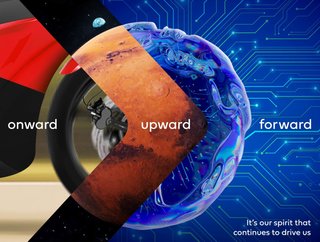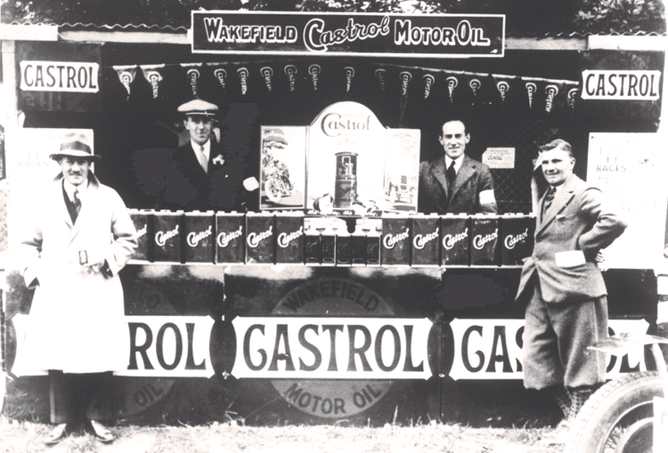‘Onward, Upward, Forward’ for bp’s Castrol as It Turns 125

Many energy companies have operations spanning decades, with few spanning multiple centuries.
Founded as the "Wakefield Oil Company" by Charles Wakefield — a businessman, once Lord Mayor of London and philanthropist — in 1899, British oil company Castrol, which markets industrial and automotive lubricants, celebrates its 125th year in 2024.
Marking this monumental milestone, Castrol has unveiled a three-pronged strategy to meet the changes of its client base.
Castrol’s new strategy as it celebrates its 125th year
As the company blazes through its anniversary year, it is working to a new strategy: ‘Onward, upward, forward’. The strategy is made up of the three below criteria:
- Onward: Advancing mobility solutions that help people and goods move with greater efficiency through innovative technologies and a commitment to the principles of circularity.
- Upward: Aimed at helping Castrol’s industrial customers and the machines they rely on, to perform better, improving the efficiency of their operations.
- Forward: Exploring exciting opportunities and a path of progressive diversification. Castrol’s initiatives include end-to-end digital and service solutions, data centre immersion cooling, and battery thermal management. This forward-thinking approach underscores Castrol’s commitment to staying at the forefront of innovation.
Although the first two pillars of Castrol’s strategy focus on reinforcing their strength, its forward-thinking third pillar charts out where Castrol aims to harness its existing knowledge, capability and expertise to put its best foot forward. One area Castrol has identified as a growth area, for example, is thermal management and diversification into data centre cooling solutions, with work already under way when it comes to accelerating the adoption of immersion cooling for more efficient and more sustainable data centre operations.
“As we celebrate 125 years, Castrol is not just reflecting on the past but charting a course for the future,” Michelle Jou, CEO of Castrol says. “Our strategy embodies our dedication to accelerating our customers’ progress, helping them to face the challenges of tomorrow.”
She continued: “We’re developing more circular offers to help customers achieve their sustainability goals and exploring exciting new growth opportunities beyond lubricants.”
A brief history of Castrol

Founded in 1899, C.C Wakefield & Company’s initial focus was on producing lubricants for steam engines and early internal combustion engines.
In the early part of the 20th century, Castrol — now known as such after its most popular product — gained early recognition through its involvement in motorsports, contributing to Castrol's reputation for high-performance oils.
The success of Castrol Motor Oil, introduced in the 1920s, was largely down to the increasing popularity of automobiles, and the growing demand for specialised lubricants thereafter.
During World War II, Castrol’s focus shifted to lubricants for military vehicles and aircraft and, post-war, established operations in new geographies.
The brand continued to innovate from the 60s well though to the 80s, developing new lubricant technologies such as Castrol GTX.
In 2000, Castrol became a subsidiary of bp, which acquired the company for US$4.73 billion.
From 125 to the future
Castrol is investing further in its global technology hubs in China, Germany, and the Americas to continue being at the cutting edge of innovation and in a bid to future-proof its operations. It also plans to invest US$60 million in a new, state-of-the-art electric vehicle (EV) battery testing centre and analytical laboratory in the UK.
With demand continuing to grow for EVs, Castrol aims to be a key player in this space by helping internal combustion engine (ICE) and hybrid vehicles be more efficient, while aiming to lead the way in EV Fluids.
Looking ahead, Castrol is also in research collaboration with the Massachusetts Institute of Technology’s (MIT) Media Lab to support its AstroAnt Payload Program, which works on a miniature robotic swarm designed to perform inspections and diagnostic tasks on the external surfaces of spacecraft, rovers and landers. Castrol’s involvement will focus on testing space-grade lubricants to withstand the extreme environment of the lunar surface.
*******************
Make sure you check out the latest edition of Energy Digital Magazine and also sign up to our global conference series - Sustainability LIVE 2024.
*******************
Energy Digital is a BizClik brand.
- Vestas Boosts Manufacturing Processes with PTC’s Green TechTechnology & AI
- Accenture: Human-Centric AI Transforms the Energy IndustryTechnology & AI
- PG&E’s Electricity 100% Greenhouse Gas-Free, Utility SaysUtilities
- How Can UK Offshore Wind Industry Find 70,000 New Recruits?Renewable Energy






